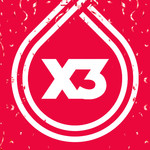Web accessibility refers to the practice of making webpages accessible to people using a wide range of software and devices, not just standard browsers. Designing websites with accessibility in mind can often enhance usability for all users.
Using a combination of manual and automated testing against the Web Content Accessibility Guidelines (WCAG), Nomensa examined the leading website in five different business sectors in 20 countries. It tested the websites of the countries’ heads of state, leading airline, bank, newspaper and retailer. Nomensa tested 100 total sites.
“Performance across the different sectors was varied, with central government, retail and banking offering the strongest accessibility performances across all countries,” Nomensa Managing Director Simon Norris said. “While only three websites made it onto the first rung of the accessibility ladder, many websites were in grasping distance of achieving minimum levels of accessibility.”
UN Secretary General Kofi Annan said the Internet should be readily available to anyone wishing to access it.
“Slowly, governments and the private sector have been recognizing the economic and social benefits of making websites fully accessible, and have been putting place changes involving software and hardware alike,” Annan said.
The 20 countries audited in the Nomensa-led United Nations survey were: Argentina, Australia, Brazil, Canada, Chile, China, France, Germany, India, Japan, Kenya, Mexico, Morocco, Russia, Singapore, South Africa, Spain, United Arab Emirates, United Kingdom and the United States of America.







